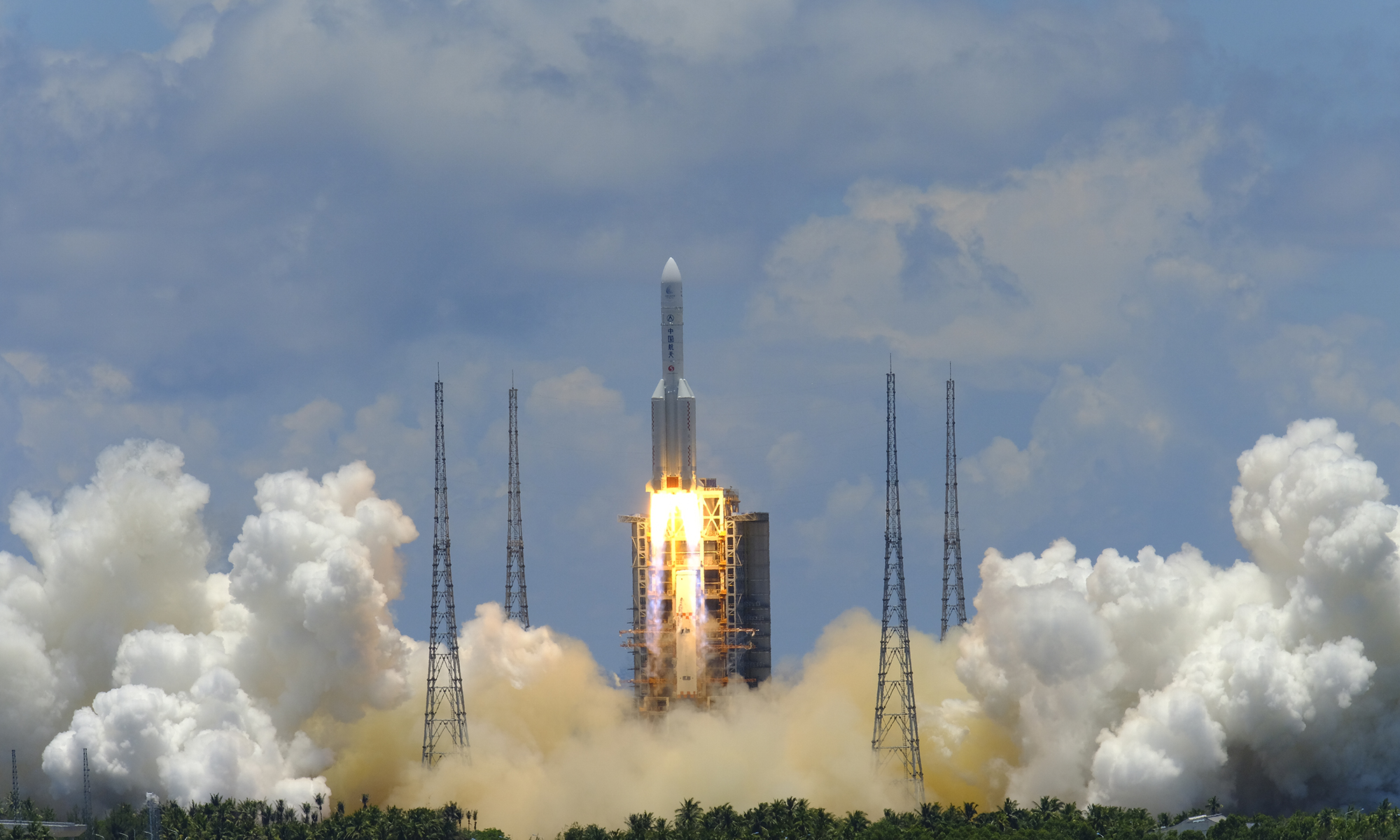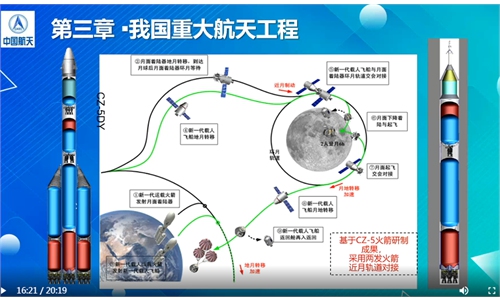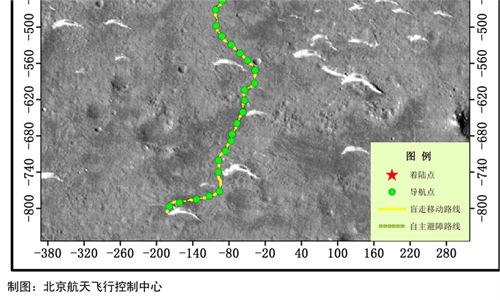
China successfully launched its first Mars probe, named Tianwen-1, via a Long March-5 Y4 carrier rocket from Wenchang Space Launch Center in South China's Hainan Province into planned orbit on July 23. Photo: Guo Wenbin/Our Space
The upcoming 13th China International Aviation & Aerospace Exhibition, or known as the Airshow China 2021, is set to become another platform to showcase new advancements in China's space technology, as major program contractors are bringing a slew of new projects such as China's first solar probe satellite as well as models of new generation manned launch vehicles to debut at the show.
The airshow is to be held in Zhuhai city, South China's Guangdong Province from September 28 to October 3.
Global Times learned Tuesday from China's state-owned space giant China Aerospace Science and Technology Corporation (CASC) that the company will stage star projects including a 3D model of the China space station complex, and the Chang'e-5 lunar probe for the first time to the public at the event.
Long Lehao, an academician of the Chinese Academy of Engineering and chief designer of Long March rockets, has recently revealed that China is planning to use new variants of the Long March-5 launch vehicle -- the strongest member of the Long March rocket family -- to carry out manned space launch missions around 2030.
Long disclosed that the new variant as Long March-5 DY, which is initials for the Chinese term dengyue, meaning lunar landing.
China Academy of Launch Vehicle Technology under the CASC, the major contractor of China's space projects and rocket manufacturer, said the project has yet to obtain state approval. But the Academy did reveal that there will be a special press release on the matter during the Airshow China 2021, sources told the Global Times.
CASC will highlight the latest achievements in China's outer space exploration, such as the Mars probe Tianwen 1, the Lunar probe Chang'e-5, the constellation deployment of the Beidou-3 Global Navigation Satellite System, and the re-entry module of the new generation of manned spacecraft test ship. A home-developed digital platform to simulate lunar probe missions will also make debut in Zhuhai, a publicity official with the CASC told the Global Times on Tuesday.
China's first solar probe satellite, which is developed by the Shanghai Academy of Spaceflight Technology under the CASC, will also make its first public appearance at the event, Global Times confirmed with a source from the academy on Tuesday.
The source declined to give more details on the sun probe craft, as the launch mission is imminent.
The CASC will also display a cluster of latest defense applications, with M20A/B surface-to-surface missile weapon system and the LY-70 air defense missile weapon system to be exhibited for the first time. It will systematically display its capabilities covering air defense, coastal defense, ground attack, unmanned combat, early warning, surveillance and security, commercial space, and communication and support systems, with the largest-ever exhibition scale and the number of new exhibits recording a new high, the CASC told the Global Times in a statement on Tuesday.
The CASC has completed 29 spaceflight launch missions this year to date, with a perfect success record, and according to the publicity official who requested anonymity, two major launches related to the country's building of the space station - namely Tianzhou-3 cargo spacecraft and Shenzhou-13 manned spacecraft -- are expected to be carried out later this year
China's home-developed Long March rocket family has delivered 386 space launches and is expected to achieve the 400th milestone this year, the CASC said in the statement.
The Long March rocket series nailed first three 100 launches in 37, seven and four years respectively and the fourth 100 launches are expected to be concluded in a faster pace in a two year period, which space insiders and analysts hailed as a show of increasingly robust space entry capability of China's rocket technology.



